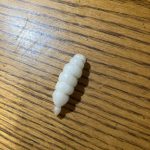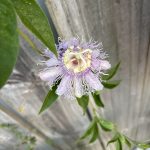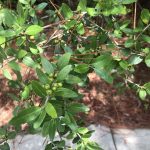Did you know that Florida has lots of native edible plants? With a range of flavors and appearances, some gardeners swear by having these plants as staples in their homestead.
However, please exercise extreme caution when identifying plants for consumption. There are many lookalikes that can be deadly to eat, and not all portions of an edible plant may be safe to eat.
If you need help identifying a plant, contact your county UF/IFAS Extension office for help.
Florida Betony
Florida betony is a native wildflower that is great for attracting pollinators to your garden. It can grow and spread rapidly, causing a nuisance for some gardeners. However, don’t go trying to remove all your lawn’s betony just yet!
This plant is almost entirely edible! Its leaves and stems can be cooked or dried for tea, and the seeds can be eaten raw. The Florida betony’s best portion is its crunchy, radish-like tuber. It can be pickled or eaten raw but must be harvested in the spring for the best texture and flavor.
Wild Passionflower

Wild passionflower is a native Florida fruit. It is a hardy, fast-growing species that is
often confused as invasive due to its tropical appearance.
Also known as maypop, wild passionflower has round green fruit that can be eaten raw or cooked. It can be used to make syrups, jams, and flavorings. Wild passionflower is great at attracting pollinators and providing cover for other species in the landscape.
Yaupon Holly
 Yaupon holly is a hardy native shrub with little serrated leaves and colorful berries. While not technically edible, the leaves make for an excellent tea. In fact, yaupon holly boasts the highest caffeine content found in a native plant anywhere in the United States.
Yaupon holly is a hardy native shrub with little serrated leaves and colorful berries. While not technically edible, the leaves make for an excellent tea. In fact, yaupon holly boasts the highest caffeine content found in a native plant anywhere in the United States.
Yaupon holly has many lookalikes, and it can be hard to positively identify it. Make sure you have a positive identification before brewing yaupon holly tea!
Information from the Florida Wildflower Foundation, UF/IFAS Gardening Solutions, and JojoHikes.
Images by iNaturalist users paulsonpair (CC BY NC 4.0), wmstrand1 (CC BY NC 4.0), and retzely (CC BY NC 4.0).